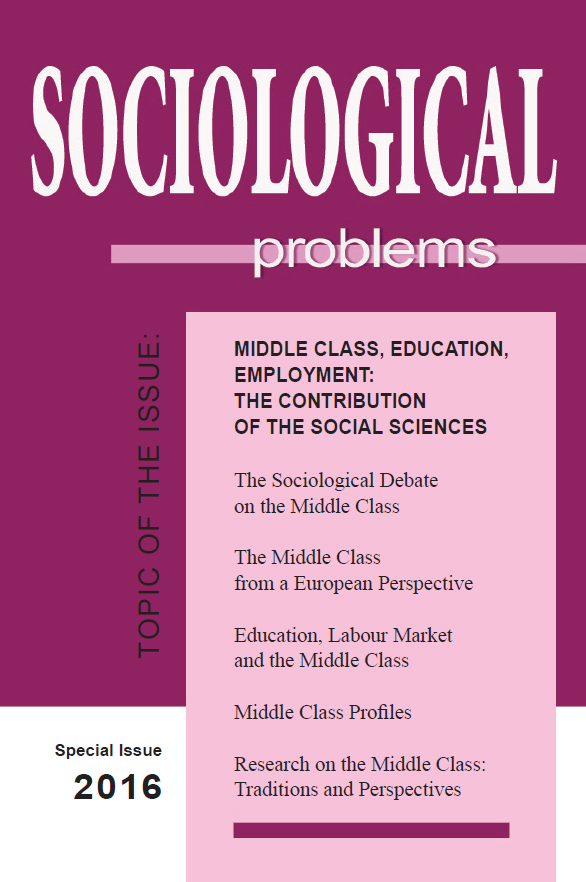Changes in Subjective Middle Class Identification in Some Post-communist European Countries (1990–2009/10)
Changes in Subjective Middle Class Identification in Some Post-communist European Countries (1990–2009/10)
Author(s): Svetlana StamenovaSubject(s): Social Sciences, Sociology, Social development, Social differentiation, Economic development
Published by: Институт по философия и социология при БАН
Keywords: middle class; Central and Eastern Europe; subjective middle class identification
Summary/Abstract: The article studies the changes in the subjective social class identification of people in Central and Eastern Europe from 1990 to 2009/2010. At the very start of the post-communist systemic transformation, the subjective middle class identification in most countries under examination was preponderant over the working and lower class identities, due to the legacies of socialism. The mid 1990s were characterized by a serious shrinking of subjective middle class identification in all countries under study, while at the end of the first decade of the new century there was an expanding subjective identification with the middle class as a result of the complete restructuring of the economic and political space and the admission to the European Union of the countries in question. The study comes to the conclusion there is no common pattern of the subjective social class structure among the post-communist European countries.
Journal: Социологически проблеми
- Issue Year: 48/2016
- Issue No: Special
- Page Range: 187-204
- Page Count: 18
- Language: English
- Content File-PDF

